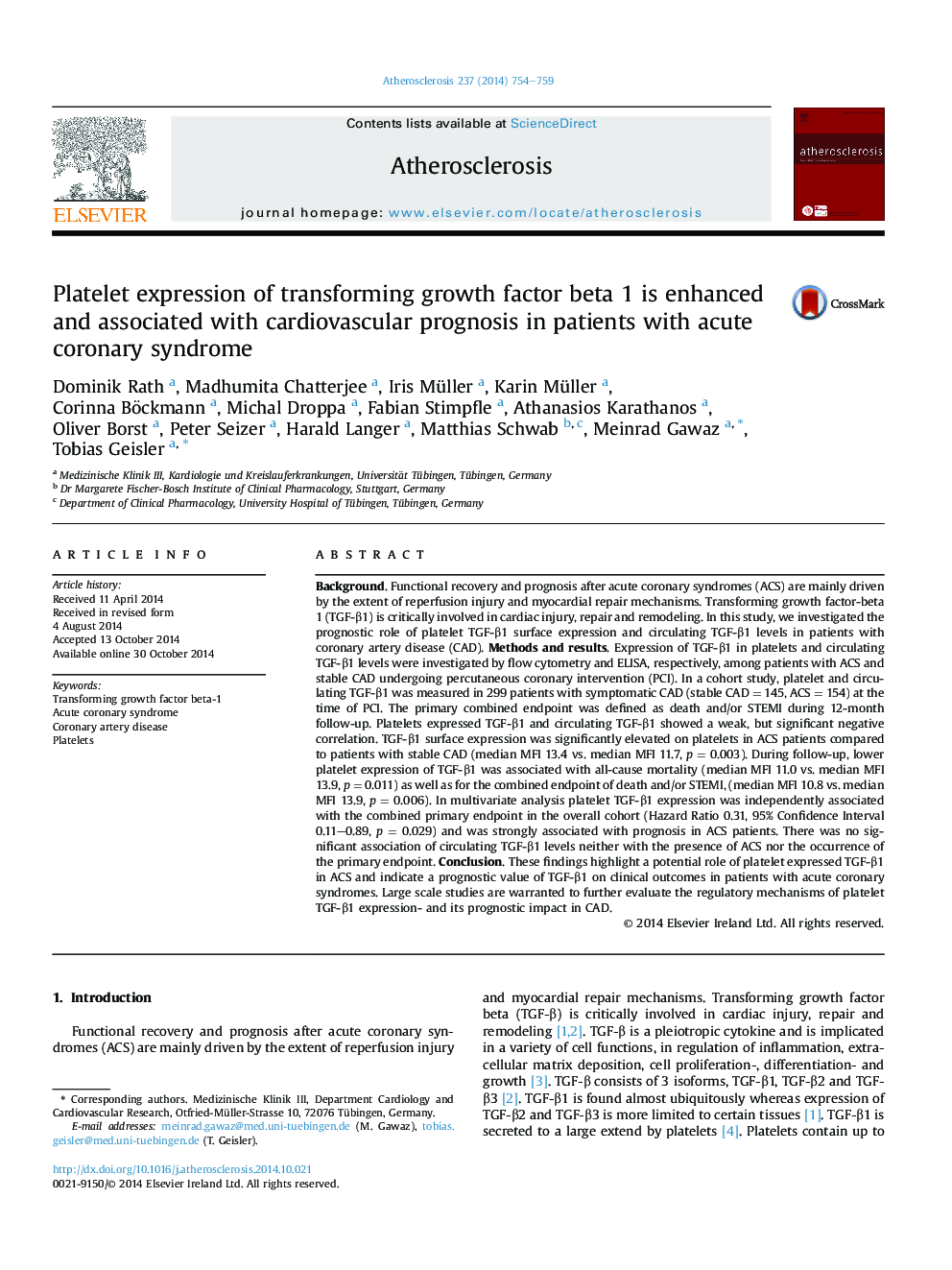| Article ID | Journal | Published Year | Pages | File Type |
|---|---|---|---|---|
| 5945395 | Atherosclerosis | 2014 | 6 Pages |
â¢TGF-b1 levels were measured in 299 patients with symptomatic CAD.â¢All patients were tracked for 12 months.â¢TGF-b1 expression is significantly higher on platelets of ACS patients.â¢Low platelet TGF-b1 is associated with mortality and major coronary events.
Background. Functional recovery and prognosis after acute coronary syndromes (ACS) are mainly driven by the extent of reperfusion injury and myocardial repair mechanisms. Transforming growth factor-beta 1 (TGF-β1) is critically involved in cardiac injury, repair and remodeling. In this study, we investigated the prognostic role of platelet TGF-β1 surface expression and circulating TGF-β1 levels in patients with coronary artery disease (CAD). Methods and results. Expression of TGF-β1 in platelets and circulating TGF-β1 levels were investigated by flow cytometry and ELISA, respectively, among patients with ACS and stable CAD undergoing percutaneous coronary intervention (PCI). In a cohort study, platelet and circulating TGF-β1 was measured in 299 patients with symptomatic CAD (stable CAD = 145, ACS = 154) at the time of PCI. The primary combined endpoint was defined as death and/or STEMI during 12-month follow-up. Platelets expressed TGF-β1 and circulating TGF-β1 showed a weak, but significant negative correlation. TGF-β1 surface expression was significantly elevated on platelets in ACS patients compared to patients with stable CAD (median MFI 13.4 vs. median MFI 11.7, p = 0.003). During follow-up, lower platelet expression of TGF-β1 was associated with all-cause mortality (median MFI 11.0 vs. median MFI 13.9, p = 0.011) as well as for the combined endpoint of death and/or STEMI, (median MFI 10.8 vs. median MFI 13.9, p = 0.006). In multivariate analysis platelet TGF-β1 expression was independently associated with the combined primary endpoint in the overall cohort (Hazard Ratio 0.31, 95% Confidence Interval 0.11-0.89, p = 0.029) and was strongly associated with prognosis in ACS patients. There was no significant association of circulating TGF-β1 levels neither with the presence of ACS nor the occurrence of the primary endpoint. Conclusion. These findings highlight a potential role of platelet expressed TGF-β1 in ACS and indicate a prognostic value of TGF-β1 on clinical outcomes in patients with acute coronary syndromes. Large scale studies are warranted to further evaluate the regulatory mechanisms of platelet TGF-β1 expression- and its prognostic impact in CAD.
